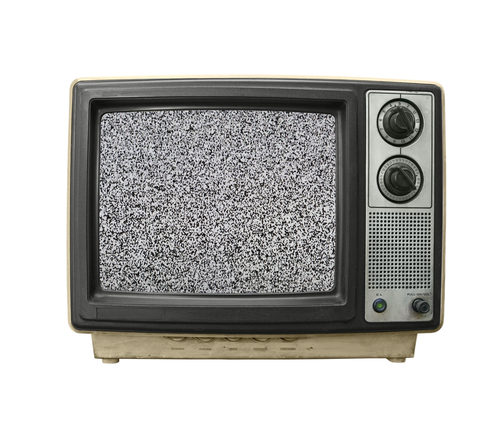Have you heard the expression “Zero TV?” If you haven’t, you will. In March of this year, The Nielsen Company (which, since 1936, has been measuring the television viewing habits of millions of viewers) coined the phrase “Zero TV households.” These represent the increasing number of families and individuals who have decided enough is enough with high cable bills and being tied to their television to watch their favorite shows. According to a recent article on The Huffington Post, there is a growing trend towards people canceling satellite and cable television and instead getting their television fix through online video subscriptions (like Netflix or Amazon), buy as you go services (like iTunes) or free services (such as Hulu). And since the typical broadcasting provider makes money only when programs are broadcast over the air, the National Association of Broadcasters is understandably concerned about their loss of revenue stream.
Reed Hastings, the CEO of Netflix, rocked the industry earlier in April by posting on Facebook that during the first quarter of 2013, Netflix subscribers watched over 4 billion hours of video (including television programming). If you do the math – which someone at a research firm apparently did – that number translates into the average US Netflix subscriber watching 87 minutes of Netflix content a day.
While some of that can certainly be attributed to the lower cost of a Netflix subscription ($7.99 a month) and the high cost of cable television (my average bill, for example, surpasses $190 each month), much of the trend translates to the easy access and availability so many of us have to mobile devices. You can watch movies and television shows on your desktop computer, your laptop, your tablet, your iPad, your mobile phone, even your Xbox or Wii. Who needs to be chained to a television any longer?
There are also some television shows (such as the popular House of Cards, starring Kevin Spacey and Robin Wright) that were created specifically for and are available only on Netflix. And the wildly popular cult hit Arrested Development – which originally aired on the Fox network from 2003 to 2006 – is being revived on Netflix with 15 new episodes to be released exclusively to its subscribers on May 26th. Having access to content you can’t get anywhere else is helping drive more and more people to these alternative viewing sources.
And not to state the obvious but in an economy that is still slowly recovering, if you have a choice of paying $7.99 a month for Netflix or a significant amount higher for cable, what choice do you think people will make?
One of the issues with cable companies is that they now tend to bundle all of their services to give you what they claim is a lower price. My real-world example is that if I use my cable provider’s triple play package – internet, landline phone and cable television – it will cost me $179 a month and give me a free digital video recording device (DVR). But when I called my provider and told them that not only do I not use my landline phone any more, I didn’t watch many of the movie channels they offered, I learned that by unbundling, I would save exactly $9 on my bill. So the lesson to be learned is that the fewer services you have with a cable company, the more each service will cost you.
Of course, you should always try to negotiate with your cable provider to get a lower rate on whatever service you get from them. All it takes is a phone call, a reminder that you’ve been a valuable and loyal customer and a hint that their service is getting too expensive for you to continue to afford it. That will usually get you a lower rate for a specified time period. (I was able to get my cable provider to reduce my bill by $45 for the next 12 months when I tried this trick recently, and did the same for my Mom’s cable bill as well.)
In the meantime, I’m going to look into becoming part of the new trend. I’m certain I can save money and get more (and maybe better) content to watch whenever I want, wherever I am. Maybe you should look into it too.
Have you heard the expression “Zero TV?” If you haven’t, you will. In March of this year, The Nielsen Company (which, since 1936, has been measuring the television viewing habits of millions of viewers) coined the phrase “Zero TV households.” These represent the increasing number of families and individuals who have decided enough is enough with high cable bills and being tied to their television to watch their favorite shows. According to a recent article on The Huffington Post, there is a growing trend towards people canceling satellite and cable television and instead getting their television fix through online video subscriptions (like Netflix or Amazon), buy as you go services (like iTunes) or free services (such as Hulu). And since the typical broadcasting provider makes money only when programs are broadcast over the air, the National Association of Broadcasters is understandably concerned about their loss of revenue stream.
Reed Hastings, the CEO of Netflix, rocked the industry earlier in April by posting on Facebook that during the first quarter of 2013, Netflix subscribers watched over 4 billion hours of video (including television programming). If you do the math – which someone at a research firm apparently did – that number translates into the average US Netflix subscriber watching 87 minutes of Netflix content a day.
While some of that can certainly be attributed to the lower cost of a Netflix subscription ($7.99 a month) and the high cost of cable television (my average bill, for example, surpasses $190 each month), much of the trend translates to the easy access and availability so many of us have to mobile devices. You can watch movies and television shows on your desktop computer, your laptop, your tablet, your iPad, your mobile phone, even your Xbox or Wii. Who needs to be chained to a television any longer?
There are also some television shows (such as the popular House of Cards, starring Kevin Spacey and Robin Wright) that were created specifically for and are available only on Netflix. And the wildly popular cult hit Arrested Development – which originally aired on the Fox network from 2003 to 2006 – is being revived on Netflix with 15 new episodes to be released exclusively to its subscribers on May 26th. Having access to content you can’t get anywhere else is helping drive more and more people to these alternative viewing sources.
And not to state the obvious but in an economy that is still slowly recovering, if you have a choice of paying $7.99 a month for Netflix or a significant amount higher for cable, what choice do you think people will make?
One of the issues with cable companies is that they now tend to bundle all of their services to give you what they claim is a lower price. My real-world example is that if I use my cable provider’s triple play package – internet, landline phone and cable television – it will cost me $179 a month and give me a free digital video recording device (DVR). But when I called my provider and told them that not only do I not use my landline phone any more, I didn’t watch many of the movie channels they offered, I learned that by unbundling, I would save exactly $9 on my bill. So the lesson to be learned is that the fewer services you have with a cable company, the more each service will cost you.
Of course, you should always try to negotiate with your cable provider to get a lower rate on whatever service you get from them. All it takes is a phone call, a reminder that you’ve been a valuable and loyal customer and a hint that their service is getting too expensive for you to continue to afford it. That will usually get you a lower rate for a specified time period. (I was able to get my cable provider to reduce my bill by $45 for the next 12 months when I tried this trick recently, and did the same for my Mom’s cable bill as well.)
In the meantime, I’m going to look into becoming part of the new trend. I’m certain I can save money and get more (and maybe better) content to watch whenever I want, wherever I am. Maybe you should look into it too.








